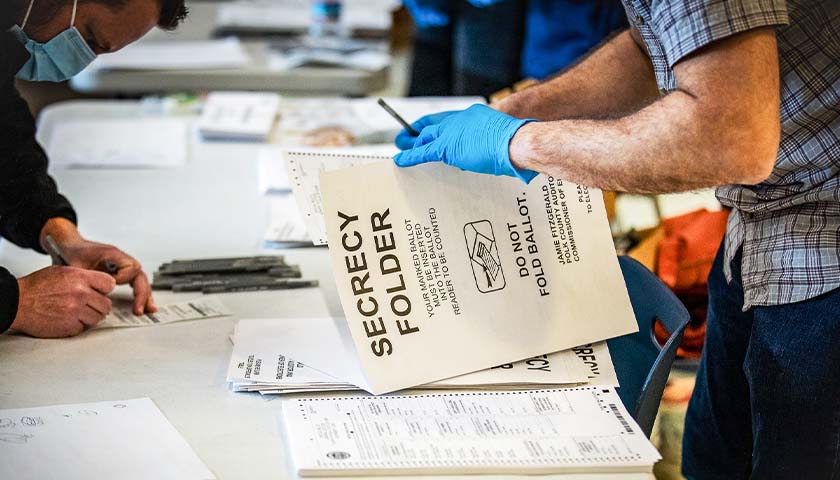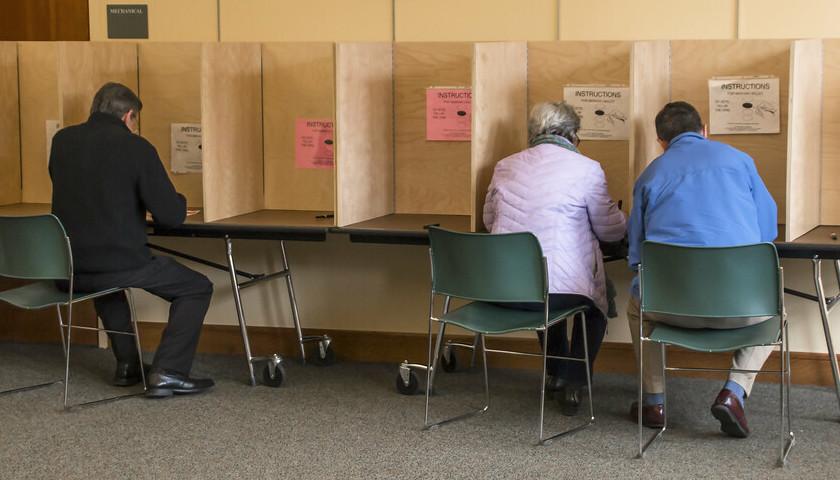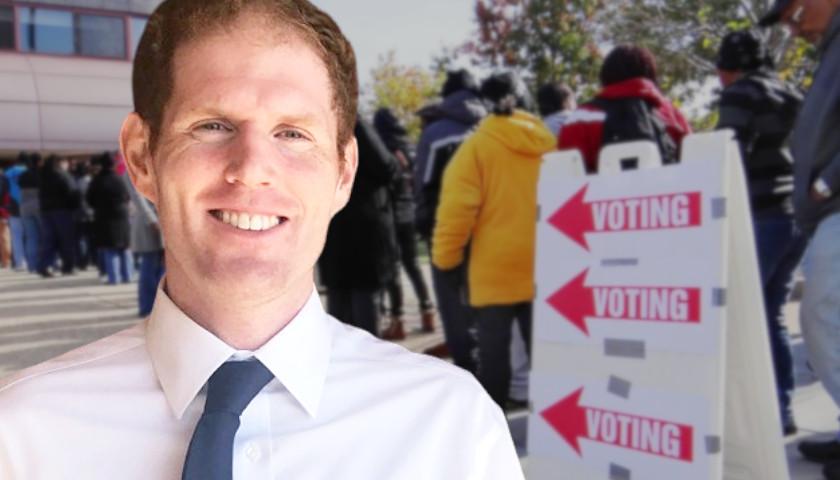by Natalia Mittelstadt
Following the November 8 midterm elections, officials in Pima County, Arizona, struggled to determine how to handle provisional ballots cast by unregistered voters, discrepant provisional ballot totals, and ballots cast by voters with old addresses — even asking the secretary of state’s office for guidance.
The confusion and uncertainty clouding county election officials’ decision-making are revealed in newly released internal emails obtained through a public records request submitted by America First Legal Foundation.
A week after Election Day, Pima County Recorder Gabriella Cazares-Kelly wrote to Pima County Elections Director Constance Hargrove that the Recorder’s Office found that 11 unregistered voters had cast provisional ballots but was unsure what to do about them because her office was “not normally in possession of the Provisional Ballots and my team is very opposed to opening them.”
In reply, Hargrove sidestepped responsibility, writing to the recorder, “It is your call how you want to handle the provisional ballots.”
There was also an issue with poll workers providing voters ballots with their previous rather than current addresses, potentially invalidating their votes.
“We’re seeing that that Poll Workers issued ballots for a voter’s previous address, instead of their new address, which puts them in the wrong precinct,” Cazares-Kelly wrote in a November 12 email to Hargrove. “This is not the voter’s error, but it would make their vote ineligible.
“This was an issue in the Primary Election as well and we decided to submit them as ‘Duplication Required’ and the races they were eligible to vote in were accepted.
“Are we okay to move forward with this process on our end, or are we wholly discarding ballots based on Poll Worker Error?”
Here, too, the elections director ducked responsibility. “Gabriella, it is not my decision how you proceed,” she wrote. “I do not know what the statute states about duplicating provisionals.”
In a November 15 email, Pima County Elections Deputy Director Jeremy George told Cazares-Kelly: “We do not have the authority to make a determination about what ballot to accept. We will process any provisionals received and accepted based on that ballot, but we will not duplicate onto a different ballot or make a determination about what ballot a voter should have voted.”
On November. 12, Cazares-Kelly reached out to the secretary of state’s office for guidance on how to deal with the ballot issue.
“Since this was a poll worker error and not an out of precinct error on the voter’s part, duplication of the eligible contests should be fine,” replied State Elections Director Kori Lorick, who serves under Katie Hobbs in the secretary of state’s office. “As with everything, please consult with your county attorney for legal advice.”
Other issues in Pima County included “problem ballots” and ballot counting discrepancies.
“Problem ballots” were mentioned several times in emails with the Recorder’s Office as ballots were being counted and processed.
Hargrove asked Cazares-Kelly on November 17 what she meant by two “problem ballots.” The recorder replied: “I don’t want to highlight the 2 ballots or anything, but if you’re asked — here’s a talking point for the last two ballots: The final two ballots required administrative approval as we completed our final review of eligible ballots. All ballots in our possession get triple checked, documented, verified and archived.”
On November 15, the Recorder’s Office reported having 460 problem ballots, and the recorder noted a discrepancy between the provisional and conditional provisional ballot totals tallied by her office and the Elections Department.
“[T]he number of provisional ballots and conditional provisional ballots wasn’t adding up to your Day After Election Receipt, but we’ve started entering them to see exactly what we have,” Cazares-Kelly wrote. “We were seeing: 1,615 provisionals in our system + 650 not in our system = 2265
“On your receipt, the conditionals were separated, but if we add the conditional provisionals 2265 + 70= 2335 that gets us closer to the original number listed on your receipt. However, I’ve been using the numbers from your receipt for reporting purposes which was 2460 Provisionals and 70 Conditional Provisionals.”
There also appeared to be confusion within the Recorder’s Office, as the senior applications developer asked on November 14 why “the provisional records received is only 1,615 in our export and Precinct Central states 2,266.”
Cazares-Kelly responded that Hargrove “theorized that the Provisionals and Conditional Provisional totals might’ve been combined in Tennex, [sic] but that would equal 2,336.” Tenex Software Solutions is an elections technology company the county uses.
In another case Cazares-Kelly raised with Hargrove, a person from the nonprofit Organize Arizona said that at one vote center “voters had complained to them that the vote center was turning voters away, not issuing provisional ballots, and that it was mostly directed to Spanish voters.”
In response to a request for comment, the Pima County Recorder’s Office told Just the News on Thursday that they were collecting the information requested and hoped to provide it by the first week of January.
On Saturday, Maricopa County Superior Court Judge Peter Thompson reaffirmed Hobbs as the winner in Arizona’s gubernatorial election, rejecting Republican nominee Kari Lake’s challenge to the results of the contest. Lake vowed to appeal the decision.
– – –
Natalia Mittelstadt is a reporter at Just the News. Mittelstadt graduated from Regent University with Bachelor of Arts degrees in Communication Studies and Government.
Photo “Election Day 2020” by Phil Roeder. CC BY 2.0.





